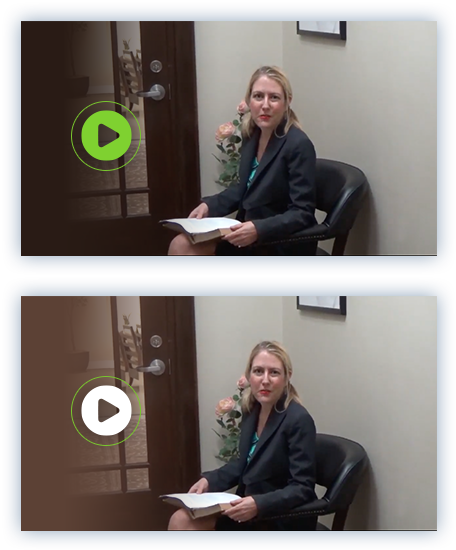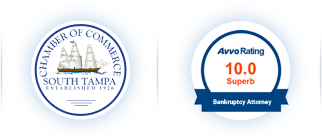Tampa Chapter 11 Bankruptcy Attorney
In today’s uncertain economic times, anyone can find themselves in temporary financial difficulty. Do you own a viable business and need some breathing room from creditors? Are you a Tampa Bay high income individual with extraordinary expenses? Are your creditors killing you with interest and late fees? Chapter 11 bankruptcy can be a valuable legal tool for you to restructure your debts while under court protection from creditors.
Now more than ever before in Tampa Bay, business owners need answers. COVID-19 has dealt a bad hand to so many hard-working small business owners. While legal theories and “what ifs” from an attorney might make for great after-dinner conversation, it won’t help you when facing a commercial eviction or bank account garnishment. Swift legal analysis of options coupled with a timely implementation of strategy can mean the difference between a company’s survival or death.
Not only can a Chapter 11 bankruptcy provide short term relief from creditors, but it can also be a powerful permanent reorganization solution. Through the “cram down” process, debts can be re-negotiated with creditors, and precious business resources allocated. A long term solution is realistic for a viable business that “but for” a temporary catastrophe, would otherwise be solvent. Examples of temporary financial disasters would include sudden loss of revenue due to a hurricane, employee theft, government fine, or of course the COVID-19 shutdowns.
Chapter 11 bankruptcy exists to allow corporations, partnerships, sole proprietorships, and high net worth individuals or high income individuals to reorganize their debt obligations. For business entities, a Chapter 11 bankruptcy typically is used when the entity wishes to restructure its debt and continue operating. (In contrast, a Chapter 7 bankruptcy would usually be used if the entity wished to liquidate its assets and dissolve at the conclusion of the bankruptcy.) For individuals, a Chapter 11 bankruptcy is used when the individual’s debts exceed the limits established for Chapter 13 bankruptcies. Contact our experienced Tampa chapter 11 bankruptcy attorney today, we can help.
How Chapter 11 Works
Filing Of The Petition And Schedules – A Chapter 11 bankruptcy case is started by filing a petition for relief with the United States Bankruptcy Court. The petition is accompanied by relevant financial information, which is provided on various forms that are sometimes called “schedules,” including:
- schedules of assets and liabilities;
- schedule of current income and expenditures;
- schedule of executory (active) contracts and unexpired leases;
- statement of financial affairs; and
If the debtor is an individual, he or she also must provide a certificate of credit counseling and a copy of any debt repayment plan, pay stubs, a statement of current monthly net income and expected increases in income or anticipated future expenses, and information regarding any interest the debtor has in federal or state qualified education or tuition plans.
In March of 2020, a new Subchapter V type of small business bankruptcy filing became available to Chapter 11 debtors. This offers a more streamlined process to small businesses and individuals, and is often a good choice for reorganization. The debtor remains in control of the business operations, although a trustee is appointed to assist in deal-making.
The Reorganization Plan – Under Chapter 11, the debtor typically has 120 days to submit a plan of reorganization. The reorganization plan generally provides for repayment of secured loans over an extended period of time or over the useful life of the collateral. Interest rates on loans may be adjusted to be within “market rate.” The plan also may call for unsecured creditors to be paid less than the full amount of their claims in full satisfaction of their claims.
Plan Approval And Confirmation Hearing – The reorganization plan is voted on by those creditors whose claims are “impaired,” meaning that their contractual rights are modified or who will be paid less than the full value of their claim. If the plan is approved by the debtor’s impaired creditors, the bankruptcy court conducts a plan confirmation hearing. Assuming the plan is confirmed, the debtor and all of its creditors are bound by the terms of the confirmed plan going forward. The bankruptcy court’s order of confirmation also officially discharges (cancels) all of the debtor’s debts, unless the debt was specifically excepted by the court.
Benefits of Chapter 11 Relief
Chapter 11 bankruptcy offers many benefits to a financially strapped debtor. Two of the main ones include the automatic stay and debtor in possession status:
Automatic Stay – Immediately upon the filing of a Chapter 11 bankruptcy petition, something called the “automatic stay” comes into effect by operation of law. The automatic stay stops creditors from beginning or continuing most actions against the debtor, including collection activities, foreclosures, repossessions, lawsuits, and attempts to collect on judgments, unless the creditor seeks and receives court approval to proceed. This gives the debtor breathing room to assess the situation and work to make the necessary changes to improve its financial situation.
Debtor In Possession – One of the greatest benefits of filing for Chapter 11 relief is that, under most circumstances, the debtor gains an additional identity called the “debtor in possession” (sometimes shortened to “DIP”). When a debtor remains as debtor in possession, the debtor continues to make business decisions and retains control over all of the business’s assets throughout the duration of the bankruptcy.
As the debtor in possession, the debtor can restructure its debts using many of legal powers that a trustee would have, and has the ability to:
- examine and object to claims against the debtor;
- hire (with court approval) accountants, attorneys, appraisers, auctioneers, and other necessary professionals to help the debtor asneeded during the bankruptcy case; and
- set aside (or avoid) certain transactions that happened prior to the filing of the bankruptcy case, including preferential transfers, fraudulent transfers, and executory (active) contracts and leases.
Chapter 11 offers many additional benefits to those needing to financially reorganize. However, because each debtor has a unique financial situation, businesses or individuals considering filing for bankruptcy in the Tampa area should contact Samantha L. Dammer
Filing For Chapter 11 Relief
Filing for Chapter 11 bankruptcy can be a very useful legal tool for a business or individual that needs breathing room to reorganize debt and get a fresh financial start. The knowledgeable and experienced Florida bankruptcy attorneys at Samantha L. Dammer can help you with all aspects of your Chapter 11 reorganization, including plan development, asset management, loan restructuring, creditor treatment, and all other bankruptcy court compliance requirements so that you can get yourself or your business back on its feet. Call us today at 813-221-3759 to get your bankruptcy-related questions answered. We are here to help.
Make The Most Out Of A Chapter 11 Bankruptcy
Whenever it’s heard among us, the term bankruptcy seems frightening. However, if dealt with in the right way – it really doesn’t have to be a bad thing. How?
Did you know that by a restaurant filing for bankruptcy, the operators can shed the weight of their debts and eventually buy some time while getting back on the path to success?
In many cases, the high wholesale food costs lead to bankruptcy being the primary reason for trouble in the food industry. However, emerging from bankruptcy with a proper reorganization is what every organization should do in times like these.
For many restaurant owners in Tampa, the bankruptcy filing opens gates to new opportunities for success as never before. Obviously, bankruptcy is a form that doesn’t rescue every brand – but indeed a form that is most flexible for future success.
Not knowing how to deal with things and reorganize priorities in times of bankruptcy is what leads businesses to failure. Instead of failing, they should dream on succeeding from bankruptcy – or in other words, a state where you cannot lose anything.
Many experts on franchise laws agree on this, and often advice local food businesses in Tampa to never back down and fail. Although restaurants and in general the whole food industry has been hit very hard by the Great Recession, there is an opportunity to eliminate the tight spending of the customers nowadays and turn things up in the way they once were.
As law experts but also food chain owners advise – the main reorganization should be the one within the tight profit margin, letting food chains and restaurants survive with a little room for flexibility, but with higher stability. Instead of risking things and going big on the profit margin, considering a Chapter 11 bankruptcy should be a priority in order to salvage the operation.
With most businesses trying the Chapter 11 bankruptcy maneuver, they try to be lent money for equipment and startup costs – with which they are buying themselves the time for paying off the debt when their business will be seen as more successful. Prompt payments, however, are an essential part of the Chapter 11 bankruptcy reorganization program. Furthermore, the main idea of this program is to reorganize a company’s debts, leases or any other sort of expenses and pay its vendors their part.
With many success stories and concepts being overwhelmed by exactly bankruptcy and fade away issues, for many Tampa restaurants , a Chapter 11 bankruptcy program is known to work amazingly well. Making the debt return a most essential yet important game in the collaboration, many restaurants have escaped from the failure that today’s bankruptcy issues carry on board.


